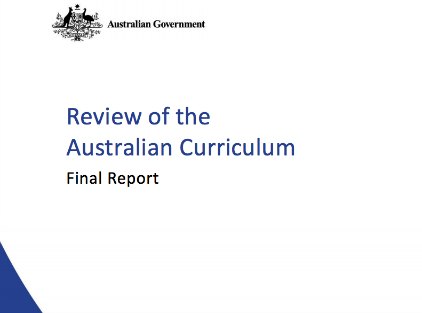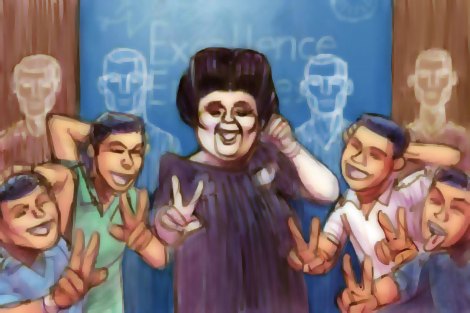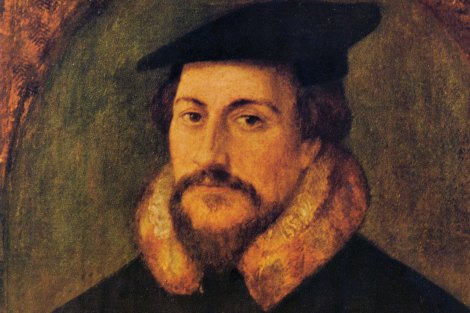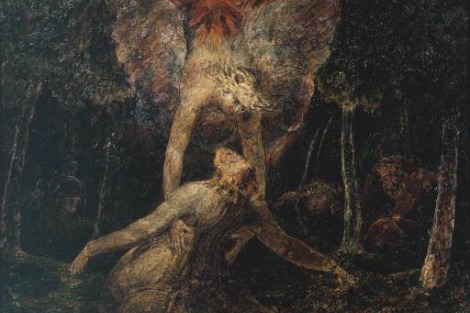Keywords: Catholic Social Teaching
There are more than 200 results, only the first 200 are displayed here.
-

RELIGION
- Chris Middleton
- 16 October 2014
5 Comments
Federal Education Minister Christopher Pyne has supported a national curriculum, while some observers have cautioned that it is not the panacea for improving educational standards that many may hope for. The Federal Review report released in the past week addresses many of the concerns, and on the whole their recommendations seem appropriate and constructive.
READ MORE 
-

INTERNATIONAL
- Fatima Measham
- 29 August 2014
7 Comments
As the world marks the International Day of the Victims of Enforced Disappearance on August 30, new generations of Filipinos find it hard to grasp what it meant to express dissent when Ferdinand Marcos was president. Some assert that, compared to the current standard of governance and politics, life must have been better under Marcos. Such perceptions are validated when trusted institutions invite Imelda Marcos as guest of honour.
READ MORE 
-

RELIGION
- Frank Brennan
- 23 July 2014
1 Comment
'Rohan provides a detailed and accurate analysis and history of the word games that have gone on between the Vatican and the Latin American bishops and theologians wrestling with the concept of the preferential option for the poor.' Frank Brennan launches The Preferential Option for the Poor: A Short History and a Reading Based on the Thought of Bernard Lonergan, by Rohan Michael Curnow.
READ MORE
-

AUSTRALIA
- Lawrence Cross
- 27 June 2014
30 Comments
While a number of Cabinet ministers are Christian, their policies seem to lack any Christian emphasis on caring for the poor and disadvantaged. America's interpretation of Christianity is heavily influenced by the doctrine of the theologian John Calvin, according to whom the rich who work hard for their wealth are preparing themselves for heaven, while the poor not only deserve their plight, but may well be abandoned by God.
READ MORE 
-

AUSTRALIA
- Michael Mullins
- 23 June 2014
6 Comments
Earlier this month, Pope Francis once again blasted capitalism. But it is not true that all business leaders dismiss those who appear chronically unproductive. Thursday's Vinnies' CEO Sleepout included investment bankers and other capitalist 'true believers', and now venture capitalist Mark Carnegie is proposing a war against growing inequality and disengagement, as if he is on a unity ticket with the Pope.
READ MORE 
-

RELIGION
- Frank Brennan
- 27 May 2014
3 Comments
'Some of us would question Benedict's assertion that the Church "must not take upon herself the political battle to bring about the most just society possible. She cannot ... replace the State." But we would all agree that the Church "cannot and must not remain on the sidelines".' Frank Brennan's presentation at the Jesuit Social Services Symposium on 'The role of faith based community organisations in contributing to a civil society'.
READ MORE
-

AUSTRALIA
It took John Howard until his third term before he let his personal leanings completely off the leash. It led to his electoral demise. Abbott is doing much the same in his first term, over-reaching, thinking himself invulnerable to a political backlash. Whereas Machiavelli's prince could rule through force, Abbott must face an electorate whose trust in political promises has been completely eroded. Our political system will take a long time to recover.
READ MORE 
-

AUSTRALIA
- Frank Brennan
- 11 April 2014
8 Comments
'We should abandon talk of taking Australia off the table. We should also abandon talk of taking the sugar off the table. The collateral damage of that is too great. The best we can do ethically and practically is to put the sugar out of reach while leaving it on the table for those who make it here with a visa or in direct flight from persecution.' Frank Brennan contributes to a Palm Sunday panel at St Michael's Uniting Church, Melbourne.
READ MORE
-

RELIGION
- Neil Ormerod
- 17 December 2013
27 Comments
Pope Francis' vision for the church of the poor is now joined to a stinging critique of our globalised economy which promotes a 'new tyranny' of unfettered capitalism and an attack on the 'idolatry of money'. While such language has not been uncommon, buried in the riches of Catholic social teaching, this pope has made it up front and centre stage of his message.
READ MORE
-

RELIGION
- Brian Lawrence
- 29 November 2013
12 Comments
In his recent address to the Yarra Institute about Christian social thinking, Fr Frank Brennan expressed the view that 'Christian churches are all but absent from the economic debate other than making the occasional, predictable utterance about ensuring that no one is left worse off as the result of new policy measures'. This seriously understates the public advocacy of the Australian churches and does a disservice to many people and organisations.
READ MORE 
-

RELIGION
- Stephen de Weger
- 27 November 2013
82 Comments
Is there an agony in the garden of Catholicism which has yet to be faced — the dark figure of clerical sexual misconduct involving adults? From my research into this issue, two aspects have become quickly apparent: that it is a 'known unknown' within Catholic life, and that it is a very complex issue. That it occurs is not in doubt. More often than not, the victim is blamed.
READ MORE 
-

RELIGION
- Frank Brennan
- 12 November 2013
5 Comments
'Having thrown off the shackles of compulsion endured by pre-Vatican II Catholics, we relish that we come to the table not because we are forced, not because of social expectations, not because of the mindset of the mob, but because we are graciously called and freely responding.' Frank Brennan's Camino Address, Parish of Our Lady of the Way North Sydney, 12 November 2013
READ MORE